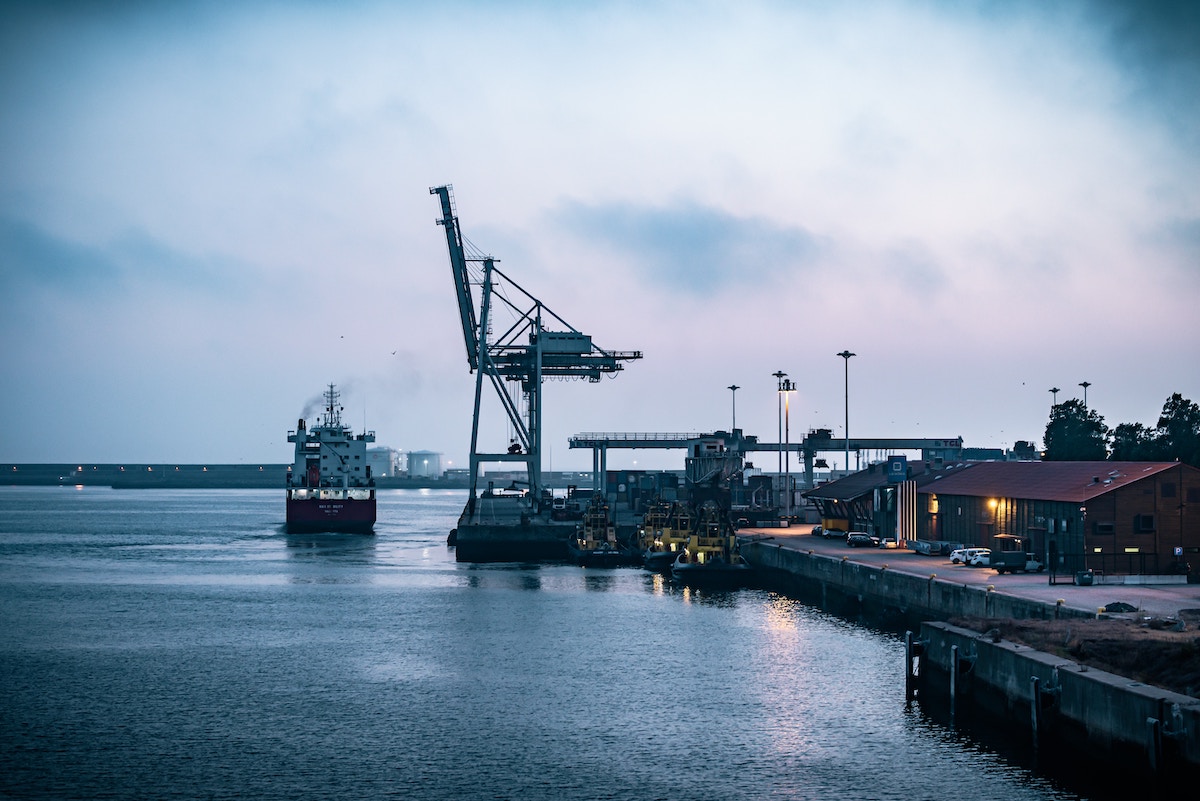Why Decarbonisation Is Important For The Maritime Sector

As climate change tightens its grip and global temperatures continue to rise, a number of sectors and industries around the world are coming together to regroup, rethink and restructure. This is probably unsurprising to many as the world continues to experience extended periods of drought, heat waves, extreme cold and flash flooding as a result of our changing climate. It’s become increasingly obvious that if we do not limit greenhouse gas emissions, the impact of climate change will only worsen over the coming decades. As we look towards a greener future, decarbonisation and environmental sustainability have become hot topics for our largest industries. The maritime sector isn’t any different.
The maritime sector is one of many global industries struggling with decarbonisation. However, with such a crucial role in the global trade and supply chain, it’s also a critical step in decarbonising the global economy as a whole. A short-term alternative includes liquefied natural gas, also known as LNG, which emits fewer CO2 emissions than conventional marine fuel. However, it’s still a fossil fuel containing potent greenhouse gases.
With alternative fuels still in development, the maritime industry must find a way to decarbonise. So why is the decarbonisation of the maritime industry important? And what is the maritime industry anyway?
What is the maritime industry?
The maritime industry is a global network of ocean-going vessels, ports and offshore infrastructure. Responsible for carrying 90% of the world’s trade, the sector is one of the primary driving forces behind the global economy. The ships in charge of this mass movement of products are some of the largest, most awe-inspiring feats of engineering on the planet. Unfortunately, these vessels are also powered and propelled by some of the largest engines. As a result, the industry is heavily reliant on carbon-heavy fossil fuels and currently emits 3% of the world’s global carbon emissions.
As the name suggests, decarbonisation is the process of reducing carbon dioxide emissions. It’s a process that much of the maritime sector is already committed to. However, if the maritime sector is going to achieve decarbonisation, it must do so in the face of legislative, financial and technical uncertainty. The alternative fuels needed to power the industry’s infrastructure, including a fleet of more than 60,000 ocean-going vessels, are still in development. This is just one of the reasons the maritime industry is notoriously difficult to decarbonise. Other challenges include the name of different vessel types and sizes, the large amounts of energy needed to operate the sector and of course, the global nature of the industry that necessitates working across multiple geographies.
Why is the decarbonisation of the maritime industry important?
The International Maritime Organisation, a body within the United Nations that regulates the maritime industry, is aiming to cut the sector’s carbon emissions in half by 2050 with the overall goal being to decarbonise completely. So why is the decarbonisation of the maritime industry important?
The maritime sector currently contributes 3% of the world’s global carbon emissions each year. Other environmental impacts include:
- The release of ballast water containing invasive species
- Use of antifoulants practices
- Chemical spills including oil
- Dry bulk cargo releases
- Excess waste and the use of single-use plastic
- Sound pollution
As a result, the most obvious reason for decarbonising the maritime industry is the positive impact on the planet. The other less obvious reason would be the industry’s global influence and how it could catalyse change across other sectors. Essentially, due to its sheer size and influence, the decarbonisation of the maritime industry has the potential to propel global green development. Already the development of alternative fuels is becoming more viable as the costs of net zero-carbon energy technology begin to decline. Collective action within the maritime industry could help increase trust and confidence in the future of environmentally friendly fuels, which have historically not been taken into account due to their high cost.
The implementation of zero-carbon shipping for example could catalyse change and accelerate a quicker transition to more sustainable consumption across the industry as well as a number of related sectors around the world. This is because demand for zero-emission fuel would increase through the global supply chain. There is also the implementation of other environmentally sustainable practices to consider, such as more sustainable marine water solutions, green corridors and green retrofitting. So although alternative fuels are still in development, there are plenty of other smaller, more manageable steps to sustainability the industry could take that could ultimately pressure other sectors to follow suit.
Conclusion
As climate change tightens its hold and global temperatures continue to increase, a number of sectors and companies worldwide are coming together to regroup, reconsider, and restructure. As the world continues to endure droughts, heat waves, extremely cold temperatures and flash floods as a result of our changing climate, it is becoming increasingly clear that the effects of climate change will only get worse over the next few decades – especially if we do nothing to curb excess greenhouse gas emissions.
As a result, decarbonisation and environmental sustainability have become major themes for the world’s largest sectors, including the maritime industry. By implementing more environmentally sustainable practices, the slow and steady decarbonisation of the maritime sector could act as a catalyst for green development across a number of other important global industries. By driving demand, investing in the right infrastructure, initiating collaboration across the industry and working with governmental bodies, the maritime sector could spur greater investment in renewable projects and essentially kickstart a green revolution.
